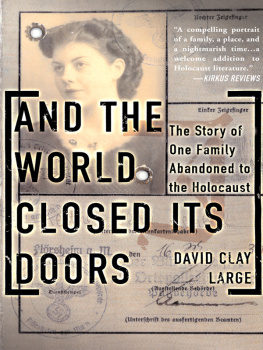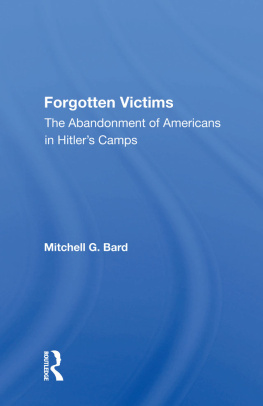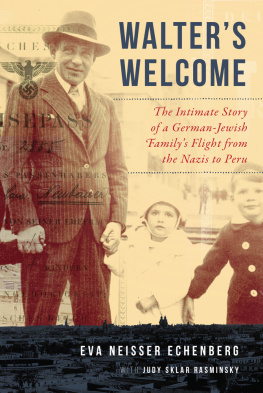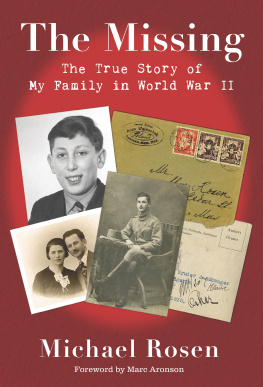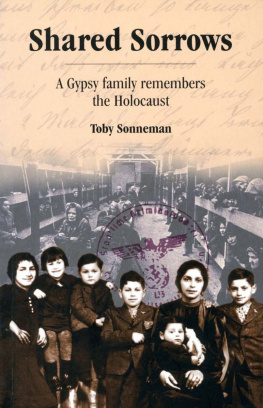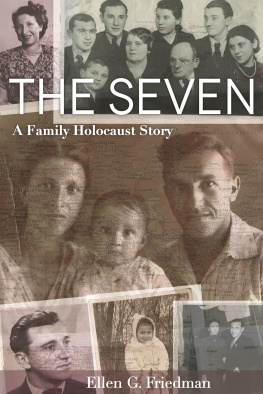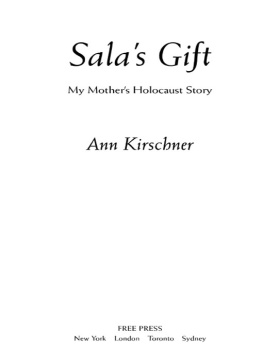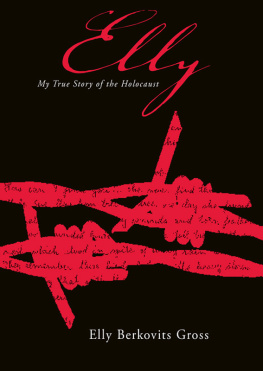AND THE WORLD
CLOSED ITS DOORS
ALSO BY DAVID CLAY LARGE
Berlin
Between Two Fires:
Europes Path in the 1930s
Germans to the Front:
West German Rearmament in the Adenauer Era
The Politics of Law and Order:
A History of the Bavarian Einwohnerwehr
Where Ghosts Walked:
Munichs Road to the Third Reich
AND THE WORLD
CLOSED ITS DOORS
The Story of One Family
Abandoned to the Holocaust
David Clay Large
Copyright 2003 by David Clay Large
Hardcover edition first published in 2003 by Basic Books,
A Member of the Perseus Books Group
Paperback edition first published in 2004 by Basic Books
All rights reserved. Printed in the United States of America. No part of
this book may be reproduced in any manner whatsoever without written
permission except in the case of brief quotations embodied in critical
articles and reviews. For information, address Basic Books, 387 Park
Avenue South, New York, NY 10016.
Books published by Basic Books are available at special discounts for bulk
purchases in the United States by corporations, institutions, and other
organizations. For more information, please contact the Special Markets
Department at the Perseus Books Group, 11 Cambridge Center,
Cambridge MA 02142, or call (617) 252-5298, (800) 255-1514 or
e-mail .
Designed by Lisa Kreinbrink
Set in Meridien
The Library of Congress has cataloged the hardcover edition as follows:
Large, David Clay.
And the world closed its doors : the story of one family
abandoned to the Holocaust / by David Clay Large.
p. cm.
Includes bibliographical references and index.
ISBN 0-465-03808-5 (hc.)
eBook ISBN: 9780786748600
1. Schohl, Max, 1884-1943. 2. JewsGermanyFlrsheim
Biography. 3. Holocaust, Jewish (1939-1945)Germany Flrsheim.
4. Schohl family. 5. Schohl, Max, 1884-1943
Correspondence. 6. Flrsheim (Germany)Biography. I. Title.
ISBN 0-465-03809-3 (pbk.)
DS135.G5S35755 2003
940.53'18'0922dc21
2002153720
To
Kthe Schohl Wells
and in memory of
Dr. Max Schohl

Shall we refuse the unhappy fugitives from distress
that hospitality which the savages of the wilderness
extended to our forefathers arriving in this land? Shall
oppressed humanity find no asylum on this globe?
THOMAS JEFFERSON, 1801
Hitler was quicker than the consuls on whose moods
depended the visas that could save us.
ALFRED POLGAR
And you still thought, after the Nuremberg Laws and
other horrors, that you were Germans? But we were
Germans; the gangsters who had taken control of the
country were not Germanywe were.
PETER GAY
Acknowledgments
THE BOILERPLATE FORMULA in which an author swears that he could not have written his book without the help of many others is actually true in this case; this book could not even have been conceived, much less written, without the inspiration, guidance, and support of a host of individuals and institutions. Jody Hotchkiss, of Hotchkiss and Associates, New York, convinced me that a magazine piece published by Michael Winerip in the New York Times in 1987 constituted the raw material for a full-length historical study; my thanks to Jody for his prodding, and to Mr. Winerip for his original spadework. To translate the initial conception into a viable enterprise I needed the assistance of Dr. P. J. Wells, Max Schohls grandson, who gave me access to the trove of family letters and documents that his mother, Kthe Schohl Wells, entrusted to him. P. J.s wife, Fran, organized and catalogued the documents in a way that made them much easier to use. My agent, Agnes Krup, pushed the book along with her usual blend of patience and tenacity. Ive had editorial help at Basic Books from Don Fehr and, after he moved on, from Sarah McNally, who made useful suggestions for the final draft.
For contacts, leads, and the literal opening of archive doors during my research in Flrsheim I am indebted to Bernd Blisch, formerly the head of that towns cultural office. Two other local experts on Flrsheim, Werner Schiele and Peter Becker, shared with me their immense knowledge of their towns history and traditions; moreover, their published works constitute an invaluable source for this project. For her memories of life in Flrsheim in the 1920s and 1930s I thank Frau Irmgard Rad-czuk, who was a neighbor of the Schohls in that era. Thanks also to Jan Radczuk for his own stories, as well as for the several bottles of vodka that fueled our conversations (and on whose influence any errors in my recollection of those stories can be blamed). Mr. Janun Wloral, who works as a guide at the Auschwitz concentration camp, kindly sent me documentation from the camp archive on the death of Max Schohl.
Work in many archives and libraries in America and Europe was indispensable for this book. I wish to acknowledge the staffs at the American Jewish Archives, Cincinnati, Ohio; the Hessisches Staatsarchiv, Wiesbaden; the Library of Congress Manuscripts Division, Washington, D.C.; the National Archives, Washington, D.C.; the Public Records Office, London; the Stadtarchiv, Flrsheim; the Wiener Library, London; the Yivo Institute for Jewish Research, New York; the archive of The Charleston Newspapers, Charleston, West Virginia (especially Mr. Bob Schwarz); the Landesbibliothek, Wiesbaden; the Leo Baeck Institute, New York; the University of California Library, Berkeley; the Green Library, Stanford University; the Hoover Institution, Stanford; the New York Public Library; and the Renne Library, Montana State University, Bozeman.
Professor Robert Rydell of Montana State University vetted the manuscript from his vantage point as an expert on modern American social and cultural history; my wife, Dr. Margaret Wheeler, vetted the manuscript from her vantage point as an expert on just about everything. My thanks to them both.
Another convention in acknowledgment writing is to save the greatest debt for last, and in this case the convention again has genuine meaning. Kthe Schohl Wells has been my partner in this project from beginning to end, sharing with me sometimes painful memories of her familys experiences during the early phases of the Holocaust in Flr-xii sheim, of exile in Yugoslavia, and of slave labor in the war-torn Reich. She also painted vivid verbal portraits of the American relatives who tried to help her family escape to the United States during the Hitler era, and with whom she became personally close following her emigration to America after the war. To the degree that I have been able to bring the Schohl family and their would-be American rescuers to life, and thereby to endow this story with a vital human dimension, I have done so only with the constant assistance of my partner. This is her book as much as mine.
Introduction
THE LAST TIME I saw my father, recalls Kthe Schohl Wells, we were sitting on my bed in our flat in Ruma [Yugoslavia]. He said he would be back in a few days, and not to worry. We, my mother and sister and I, believed him, because he had been arrested several times before and always come back. We had no idea when they took him away that summer in 1942 that this time it was for good. A year later the Schohl women learned that the head of their family, Dr. Max Schohl, had been deported to Auschwitz, where he died in December 1943.

